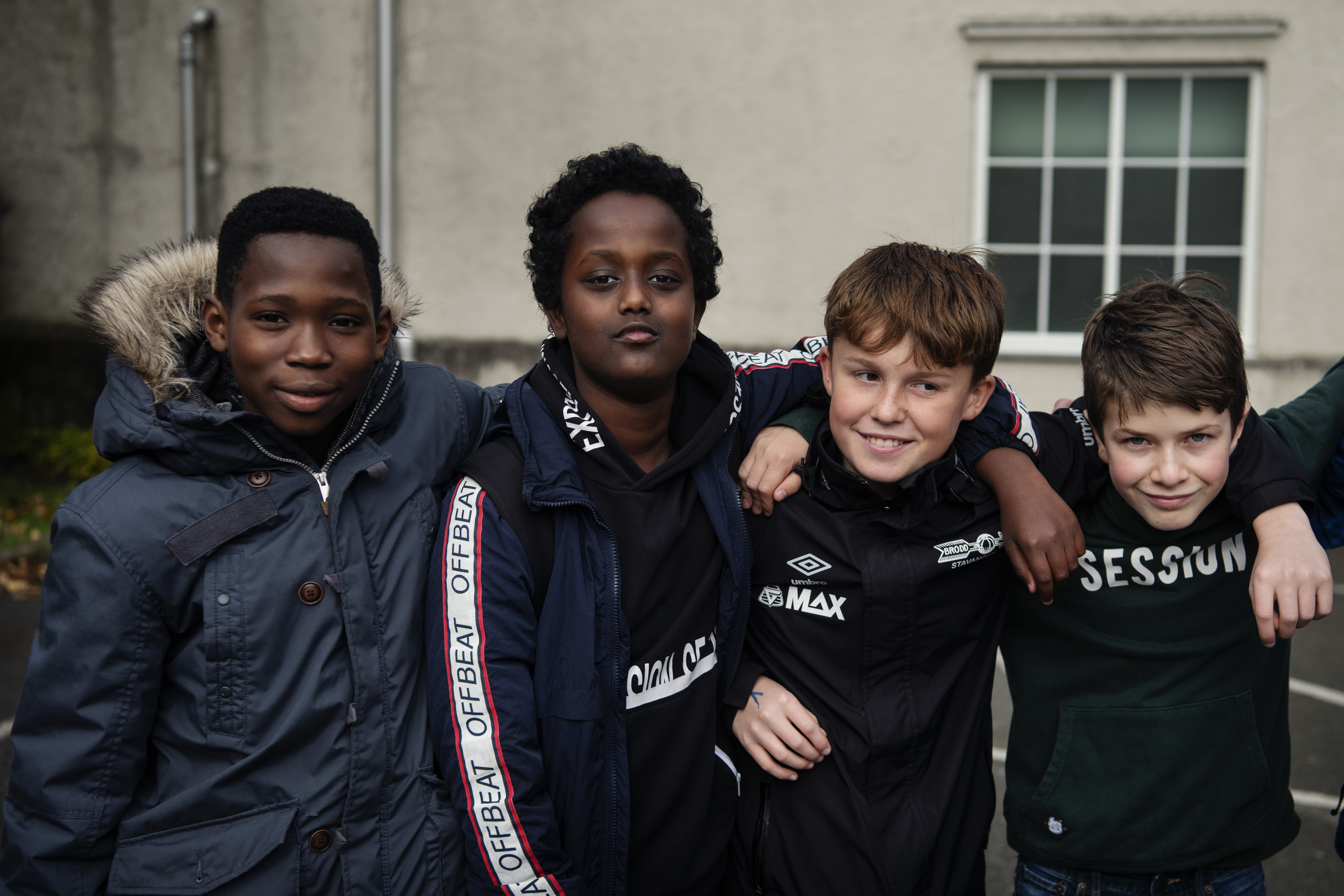Improving youth well-being, motivation and academic achievement through social and emotional learning.

Location: Rogaland, Norway
Sample: 2500 children in 100 middle school classes
Timeline: 2019 to 2024
Target group: Ninth graders in middle school
Outcome of interest: Students’ social and emotional competencies, well-being, motivation and school achievement
Intervention: Comprehensive social and emotional learning curriculum and professional development for teachers
AEA RCT Registration Number: To be registered
Data: Survey measures of students’ social and emotional competencies, well-being and motivation. School administrative records on school achievement. Registry data from Statistics Norway on family background and school achievement. Data on implementation and process measures.
Principal Investigators: Edvin Bru and Mari Rege
Investigators: Edvin Bru, Mari Rege, Kjersti Tharaldsen, Sigrun Ertesvåg, Ingeborg Solli, May Linn Auestad
Funders: The Research Council of Norway
Policy Issue
Research suggests that teaching students social and emotional skills can improve students' well- being and motivation, reduce emotional distress and loneliness, and improve academic outcomes (Clarke et al. 2015, Durlak 2015, Durlak et al. 2011, Sklad et al. 2012). This is important as students in Norway and other countries report high levels of loneliness and school related stress, and low levels of academic motivation (Lillejord et al. 2015, Skaalvik & Federici 2015). The percentage of students reporting that it is easy to find friends at school has decreased considerably during the last 15 years and loneliness has been linked to dropout from upper secondary school (Frostad et al. 2015). Additionally, studies indicate that nearly half of students in lower secondary schools often experience school related stress (Bakken 2017). Stress can have negative effects on learning and academic performance, especially when it comes to deep and complex learning (Vogel & Schwabe 2016). Stress is often related to perceptions of threats of academic failure. Such threats and actual academic failure can lead to feelings of hopelessness concerning schoolwork. Some students may protect themselves against stress by becoming more cynical concerning school work (Salmela-Aro 2017), which may underlie the negative development of school motivation found in the period from middle school through upper secondary school (Engels et al. 2016, Wang & Eccles 2012).
Context
We investigate intervention effects with at least 100 participating eighth-grade teachers and their classrooms in Rogaland, Norway. In Norway children start middle school at age 13 and high school at age 16. The students have many different teachers in different subjects, but each class has at least one teacher as their homeroom teacher. This homeroom teacher is, in addition to teaching some of the subjects, responsible for facilitating the students’ well-being at school and communication with the parents.
Intervention
The intervention consists of a comprehensive social and emotional learning curriculum, referred to as ROBUST. ROBUST fosters competencies in social relationships, emotional regulation, problem solving, and growth mindset. This new curriculum is accompanied by teacher training in how to implement it. The training also includes sections on how teachers can use components of ROBUST in ordinary school subjects. The teachers of the classes in the intervention group were expected to work with the curriculum for at least one hour every week.
Experimental Design
We will investigate effects of ROBUST in an RCT with at least 100 participating eighth-grade teachers and their classrooms in Rogaland. In medium and large municipalities, most middle schools have at least two classes for each cohort, and six classes is common. We conduct a two-arm RCT with implementation and process evaluation. We randomly select half of the eighth-grade teachers (and their classrooms) at each school to be treated (randomization at the classroom level within each school). Treated teachers receive the teacher training and implement the ROBUST curriculum with their eight-graders. We assess the children in treated and control prior to intervention in August 2020 (T1), post intervention in June 2021 (T2), and in a one-year follow-up in June 2022 (T3). During treatment implementation the teachers in the control group continue as before. However, in order to encourage participation and commitment to the field experiment, the control group receive the same teacher training two years later (a phase-in RCT). Importantly, extensive measures will be taken to reduce contamination from treated to control classrooms.
The RCT design is supported by a process evaluation investigating the relationship between the quality of implementation, the context of the intervention and the main trial outcomes. The Implementation Process Evaluation framework (Humphrey et al. 2016) guides this process evaluation. A survey and interview approach includes assessment of all key functions: context, the eight dimensions of implementation, and mechanisms of impact. Key sources of IPE data are implementers (teachers), and intervention participants (students) and document analysis (teacher's course assignment).
Results and Policy Implications
First publication is expected in the fall 2022.
UiS Synapse Lab develops and investigates interventions for promoting motivation and learning in education and work life. The fields of the most active researchers in the Lab are education, economics of education, labor economics, psychology and public health. In most of our research projects, we work across disciplines.
